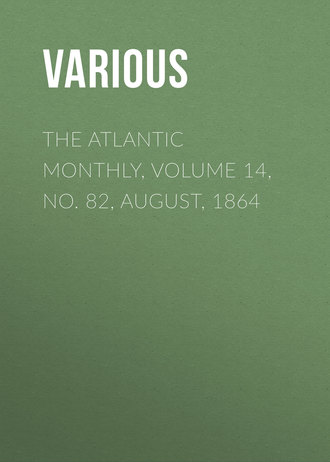The Atlantic Monthly, Volume 14, No. 82, August, 1864
 полная версия
полная версияThe Atlantic Monthly, Volume 14, No. 82, August, 1864
Жанр: учебная и научная литературазарубежная старинная литературазарубежная образовательная литературазнания и навыки
Язык: Английский
Год издания: 2018
Добавлена:
Настройки чтения
Размер шрифта
Высота строк
Поля









